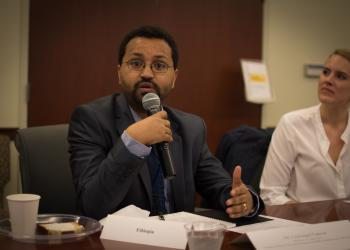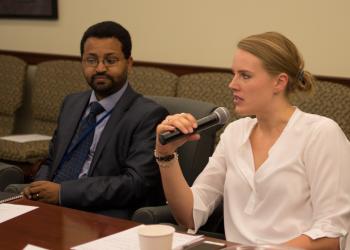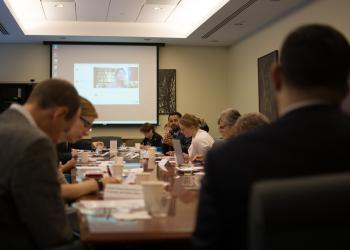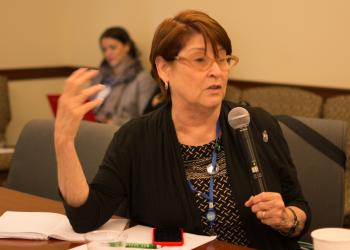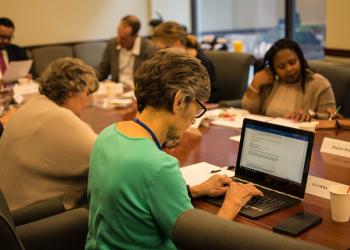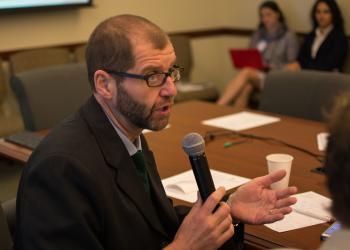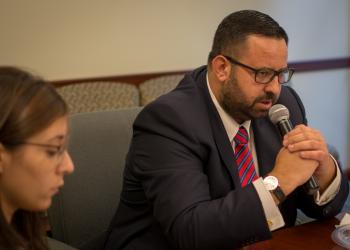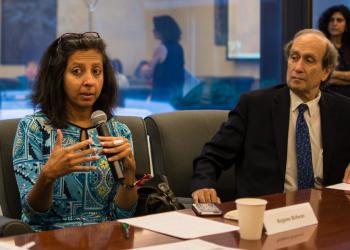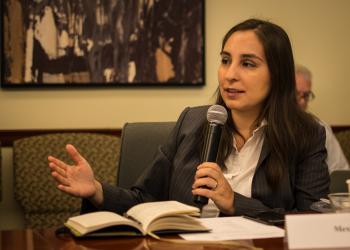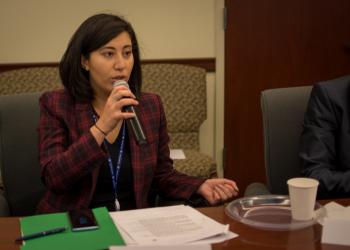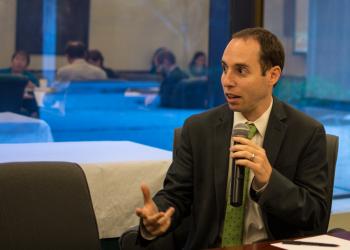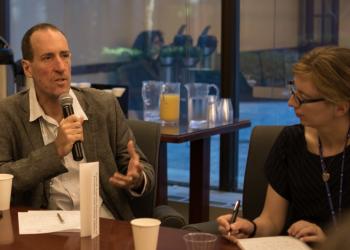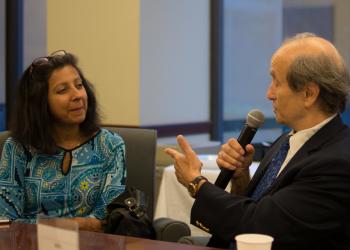HLPF 2017 in retrospect: Furthering prospects for a successful HLPF 2018
Strengthened relationships and mutual trust are the foundations of cohesion between governments and civil society. This sentiment is vital as we consider the progress of the sustainable development goals and the role of the Voluntary National Reviews (VNRs) at the 2017 High-Level Political Forum and plan to build on successes for 2018.
In order to broaden understanding of the mutual benefits that can accrue from cooperation, the Baha'i International Community (BIC), in partnership with Regions Refocus, hosted a breakfast meeting to address the progress of the sustainable development goals, the lessons accrued from the VNR process, and how advancements should be implemented in the year ahead
Held on 28 September, the breakfast brought together diplomats, UN officials, and representatives of civil society. It was the 39th such informal working breakfast.
Opening remarks were delivered by Mr. Leulseged Tadesse; Minister Counsellor, Permanent Mission of the Federal Democratic Republic of Ethiopia to the United Nations, and Ms. Alessandra Nilo, General Coordinator; Gestos who is based in Brazil.
The ensuing dialogue addressed the need for global partnerships. National efforts--crucial as they may be--cannot mobilize some of the most influential actors such as the private sector and international aid agencies. On the other hand, the need to localize the participatory process remains a focal point of discussion. Participatory consultations at all levels amongst different sectors is necessary in order to galvanize action and ownership of the SDGs. Ultimately, it is this process of consultation which has proven to be more integral than the VNR report itself.
Unfortunately, there are instances when those engaged in these process do not see the benefit of genuine participation. For example, inquiries posed by civil society during VNR presentations were not answered. As it currently operates, decision-making bodies within UN systems do not have a unity of vision for the inclusion of civil society organizations in the shared endeavor that is Agenda 2030.
Other questions arose regarding the process and purpose of the VNRs. Are annual reports sufficient or too much? Is the amount of time allotted to the reporting process at the UN commensurate with the importance of these reports? Should there be a uniform approach to the VNR report? How do we ensure indivisibility of the Agenda when there is only sufficient capacity to report on a narrow slice of the endeavors? What is most helpful to other Member States and onlookers as reports are being delivered?
In reflecting on the nature of the gathering, Daniel Perell - a representative of the Baha'i International Community - said “these questions must continually be asked of all actors at the UN for it is when we stop questioning how to make processes more effective that they begin to calcify and lose their impact.”
For more information, the notes from the program can be found here.
